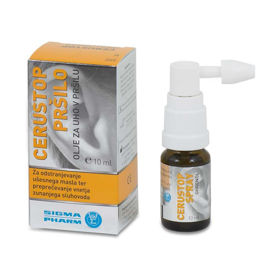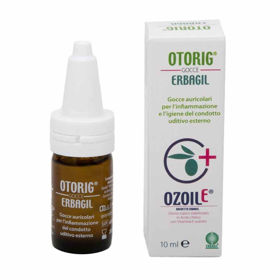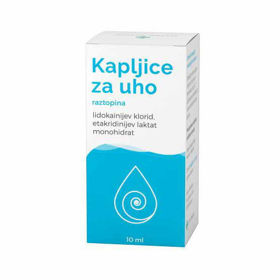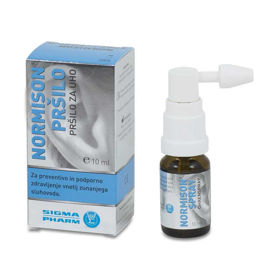Customer question:
How to unclog an ear? Anonymous customer's question
Pharmacist's answer:
How to unclog an ear?
If you have blocked ears, try swallowing, yawning, or chewing gum to open the Eustachian tubes. If that doesn't work, take a deep breath and gently blow your nose while closing your nostrils and keeping your mouth closed. If you hear a pop, you know you've made it.
Other options for unclogging your ears include using the following:
- nasal decongestants
- local nasal steroids
- ventilation pipes
What causes blocked ears?
Common causes of blocked ears include altitude or atmospheric pressure changes, allergies, colds, Eustachian tube dysfunction, ear infections, and fluid, foreign bodies, or earwax blocking the Eustachian tube. Most of the time, these problems are easily diagnosed and treated. Decongestants and nasal sprays are the best remedy for blocked ears caused by allergies and colds.
Can blocked ears be dangerous?
Although blocked ears are unpleasant, the condition is usually not dangerous. Nevertheless, it makes sense to consult a doctor, especially if you notice symptoms such as ear pain, dizziness, or hearing loss. Some people produce more earwax than others and may need routine treatment to remove it.
How is earwax rinsed?
If the problem is earwax build-up, your doctor will irrigate their office using a syringe-like tool. This tool will apply water or a mixture of water and saline to the ear. You may feel slight discomfort from applying water pressure to the ear.
You must purchase medical devices to rinse earwax safely to rinse at home. The most common method is to use a dropper to dose baby oil, mineral oil, or a particular medicine into the ear to soften earwax.
The procedure is as follows:
- For a few days, two to three times a day, put a few drops of the selected liquid into the ear
- Once the earwax has softened, use a syringe filled with water (room temperature or slightly warmer) or a mixture of water and saline to wash away the wax effectively.
Can ear washing be dangerous?
Do not do ear washing (either at home or in a doctor's office) if you have a damaged eardrum, tubes in your ears, or a condition that weakens your immune system. You should also not rinse your ears if you have an active ear infection.
Otitis externa is a common complication that can occur when washing the ears. This is an inflammation of the ear canal that an infection can cause. Another possible complication is otitis media, which can result from an infection. Ear inflammation is one of the most common complications of ear washing.
Perforated eardrums are another possible complication of ear irrigation. In some cases, ear washing will press on the earwax and compress it more, making it harder to remove and can put more pressure on the eardrum, increasing the risk of perforation.
Interesting reading: Ear washing procedure
Interesting reading: How to unclog a plug in the ear












 Facebook
Facebook
 Instagram
Instagram
 info@moja-lekarna.com
info@moja-lekarna.com

